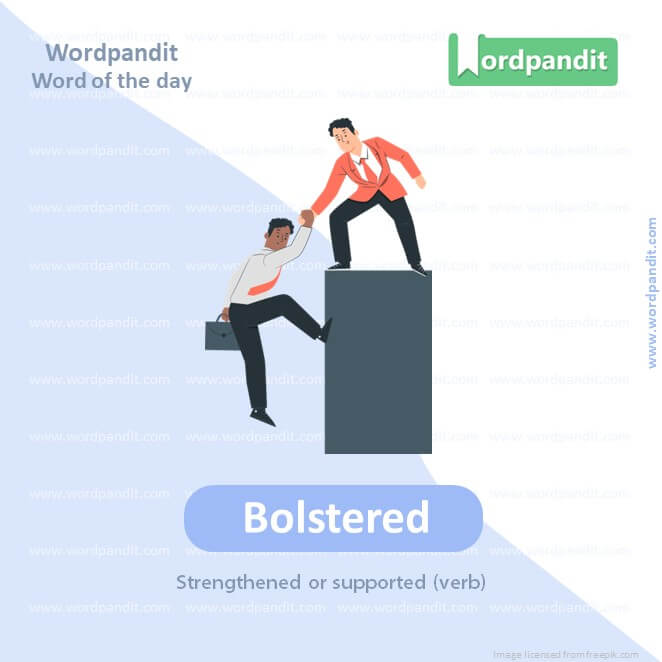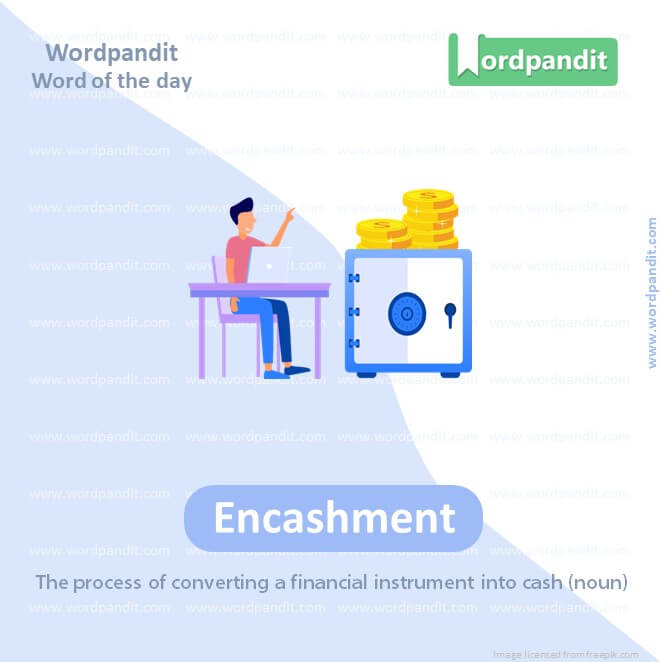Daily Vocabulary Words: List of Daily Used Words
Hi there. Welcome to this special section @ Wordpandit.
Our endeavour here is straightforward: highlighting important daily vocabulary words, you would encounter in The Hindu. This is your repository of commonly used words; essentially, we are posting a list of daily used words. Hence, this has significant practical application as it teaches you words that are commonly used in a leading publication such as The Hindu.
Visit the website daily to learn words from The Hindu.

WORD-1: Gobbling
CONTEXT: the richest countries and those historically responsible for gobbling sparse atmospheric capacity for carbon must commit to greater and faster reductions.
SOURCE: The Hindu
EXPLANATORY PARAGRAPH: Gobbling is when you eat something really fast, like when you’re super hungry and you don’t take time to chew your food slowly.
MEANING: To eat quickly and often noisily (verb).
PRONUNCIATION: gaw-buh-ling
SYNONYMS: Devouring, wolfing, scoffing, gulping, scarfing, snarfing, ingesting.
USAGE EXAMPLES:
1. The children were gobbling up their snacks during the picnic.
2. He started gobbling his dinner because he was late for the movie.
3. The dog was gobbling its food as if it hadn’t eaten in days.
4. They were gobbling down the cake at the birthday party.

WORD-2: Reaffirmed
CONTEXT: Jaime Bautista reaffirmed this earlier this month when he noted that the Philippine government is willing to tap both countries for development assistance.
SOURCE: The Hindu
EXPLANATORY PARAGRAPH: Reaffirmed is like saying or showing again that you really believe in something or agree with it.
MEANING: To state again strongly or confirm (verb).
PRONUNCIATION: ree-uh-furmd
SYNONYMS: Reasserted, confirmed, reiterated, restated, avowed, upheld, validated.
USAGE EXAMPLES:
1. The principal reaffirmed the school’s commitment to sports.
2. She reaffirmed her promise to help him with his project.
3. The meeting reaffirmed our strategy for the next year.
4. The coach reaffirmed his belief in the team’s abilities.
WORD-3: Trajectory
CONTEXT: The historic visit of Japanese Prime Minister Fumio Kishida to the Philippines marked a turning point in the trajectory of bilateral ties.
SOURCE: The Hindu
EXPLANATORY PARAGRAPH: Trajectory is the path something takes when it’s moving, like how a ball flies through the air when you throw it.
MEANING: The path followed by a moving object, especially through space (noun).
PRONUNCIATION: truh-jek-tuh-ree
SYNONYMS: Path, course, route, arc, track, line, orbit.
USAGE EXAMPLES:
1. The trajectory of the rocket was carefully calculated.
2. He studied the ball’s trajectory as it soared through the air.
3. The meteor followed a fiery trajectory through the night sky.
4. They analyzed the projectile’s trajectory in physics class.

WORD-4: Bolstered
CONTEXT: Japan and India’s bolstered engagements in Southeast Asia complement the interest of resident countries like the Philippines to lessen their susceptibility to China’s expanding economic clout and deepening power projection capabilities.
SOURCE: The Hindu
EXPLANATORY PARAGRAPH: Bolstered is like making something stronger or better supported, like adding more pillows to make your fort stronger.
MEANING: Strengthened or supported (verb).
PRONUNCIATION: bohl-sturd
SYNONYMS: Strengthened, supported, reinforced, buttressed, shored up, fortified, underpinned.
USAGE EXAMPLES:
1. His confidence was bolstered after winning the award.
2. They bolstered the bridge to make it safer.
3. She felt bolstered by her friends’ support.
4. The team’s morale was bolstered by the victory.

WORD-5: Depriving
CONTEXT: The government should not mean depriving them of the existing facilities and demanding additional benefits.
SOURCE: The Hindu
EXPLANATORY PARAGRAPH: Depriving is when someone doesn’t let you have something you need or really want, like if someone takes away your favorite toy.
MEANING: Preventing someone from having or enjoying something (verb).
PRONUNCIATION: dih-pry-ving
SYNONYMS: Denying, withholding, stripping, dispossessing, bereaving, divesting, removing.
USAGE EXAMPLES:
1. Depriving children of playtime is not good for their development.
2. They were accused of depriving their employees of basic rights.
3. Depriving him of his phone as punishment seemed unfair.
4. The law was seen as depriving citizens of their freedom.
WORD-6: Assimilation
CONTEXT: the employees staged a protest, arguing that assimilation of the RTC staff.
SOURCE: The Hindu
EXPLANATORY PARAGRAPH: Assimilation is like when you become part of a new group and start to act like them, like when you learn to play a new game with your friends.
MEANING: The process of becoming similar to or fully understanding something (noun).
PRONUNCIATION: uh-sim-uh-lay-shun
SYNONYMS: Integration, absorption, incorporation, adaptation, amalgamation, convergence, blending.
USAGE EXAMPLES:
1. The assimilation of new ideas can take time.
2. Immigrants often face challenges in the assimilation into a new culture.
3. The company aimed for the smooth assimilation of new employees.
4. Language assimilation is important for communication.

WORD-7: Encashment
CONTEXT: Payment of their leave encashment has been pending for the past three years, gratuity fund has been stopped for the deceased.
SOURCE: The Hindu
EXPLANATORY PARAGRAPH: Encashment is like turning something like a check into actual money that you can use to buy things.
MEANING: The process of converting a financial instrument into cash (noun).
PRONUNCIATION: en-kash-muhnt
SYNONYMS: Liquidation, cashing, redemption, realization, conversion, monetization, clearance.
USAGE EXAMPLES:
1. The encashment of the check took a few days.
2. Travelers often require encashment of their traveler’s checks.
3. The bond’s encashment was scheduled for next month.
4. He went to the bank for the encashment of his savings certificates.
WORD-8: Resilient
CONTEXT: the issues and initiate policy-level reforms to build a resilient ecosystem for the State transport sector to thrive.
SOURCE: The Hindu
EXPLANATORY PARAGRAPH: Resilient is being strong and able to recover quickly from something hard, like getting up fast after a fall.
MEANING: Able to recover quickly from difficulties; tough (adjective).
PRONUNCIATION: re-zil-yuhnt
SYNONYMS: Tough, hardy, robust, strong, flexible, adaptable, buoyant.
USAGE EXAMPLES:
1. She showed her resilient nature during the competition.
2. Resilient materials are used in the construction of the building.
3. The community was resilient in the face of disaster.
4. Resilient children often cope well with change.
WORD-9: Prosaic
CONTEXT: Bharatiya Janata Party (BJP) has consciously anchored itself to a deeper foundation of political legitimacy, beyond the prosaic imperatives of holding on to political power.
SOURCE: The Hindu
EXPLANATORY PARAGRAPH: Prosaic means something is ordinary or not interesting, like a boring day with nothing special happening.
MEANING: Lacking poetic beauty; unromantic or commonplace (adjective).
PRONUNCIATION: proh-zay-ik
SYNONYMS: Ordinary, commonplace, mundane, unremarkable, unimaginative, dull, pedestrian.
USAGE EXAMPLES:
1. His diary was filled with prosaic entries about his daily routine.
2. The lecture was prosaic, and most students found it boring.
3. Despite its prosaic appearance, the gadget was very useful.
4. She longed for excitement in her prosaic life.
WORD-10: Gleaned
CONTEXT: one can gauge sharp discontinuities and ambiguities in the political picture gleaned from this round of State elections.
SOURCE: The Hindu
EXPLANATORY PARAGRAPH: Gleaned is like gathering small bits of information here and there, just like picking up toys scattered around the room.
MEANING: Extracted information from various sources often with difficulty (verb).
PRONUNCIATION: gleend
SYNONYMS: Gathered, collected, extracted, derived, obtained, amassed, harvested.
USAGE EXAMPLES:
1. He gleaned useful facts from the documentary.
2. Information was gleaned from various reports.
3. She gleaned a lot from her research on the topic.
4. The detective gleaned clues from the crime scene.
vocabulary games online free
In our continuously evolving digital world, the accessibility of resources is no longer a barrier to learning. The thriving domain of language learning, especially, has been revolutionized by the emergence of ‘vocabulary games online free’. They provide an engaging and interactive platform to not just enrich your lexicon, but also to instill a fun element into the process.
Learning through ‘vocabulary games online free’ begins by first acquainting oneself with the basic lexicon. These games are designed to be user-friendly, accommodating players from different age groups or skill levels. Whether you are a novice English learner or a seasoned language enthusiast looking to brush up on your vocabulary, these games offer a range of levels to suit your needs.
Furthermore, ‘vocabulary games online free’ introduce an enjoyable competitiveness into learning. Many of these games include timed challenges, puzzles, word jumbles, and hangman-style games that progressively improve your vocabulary. They break away from the monotony of traditional learning methods and stimulate rapid learning.
Consistency is perhaps the most essential aspect of learning through ‘vocabulary games online free’. Just like any other educational tool, the effects of these games are most pronounced when used regularly. By setting aside a dedicated time to play these games every day, you ensure continuous vocabulary enrichment.
Lastly, remember that ‘vocabulary games online free’ are, at the end of the day, tools designed to help. Don’t get disheartened if progress feels slow or if a certain level seems unbeatable. These are all stepping stones designed to enhance your language proficiency through repeated exposure.
In a nutshell, ‘vocabulary games online free’ are transforming the landscape of language learning. With their user-friendly interfaces, engaging game mechanics, and diverse learning levels, they provide an excellent platform for vocabulary enrichment. Embrace these free online tools and let the digital world aid you in expanding your linguistic horizons.













